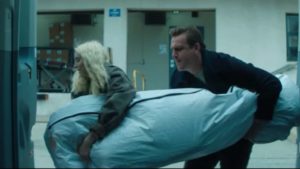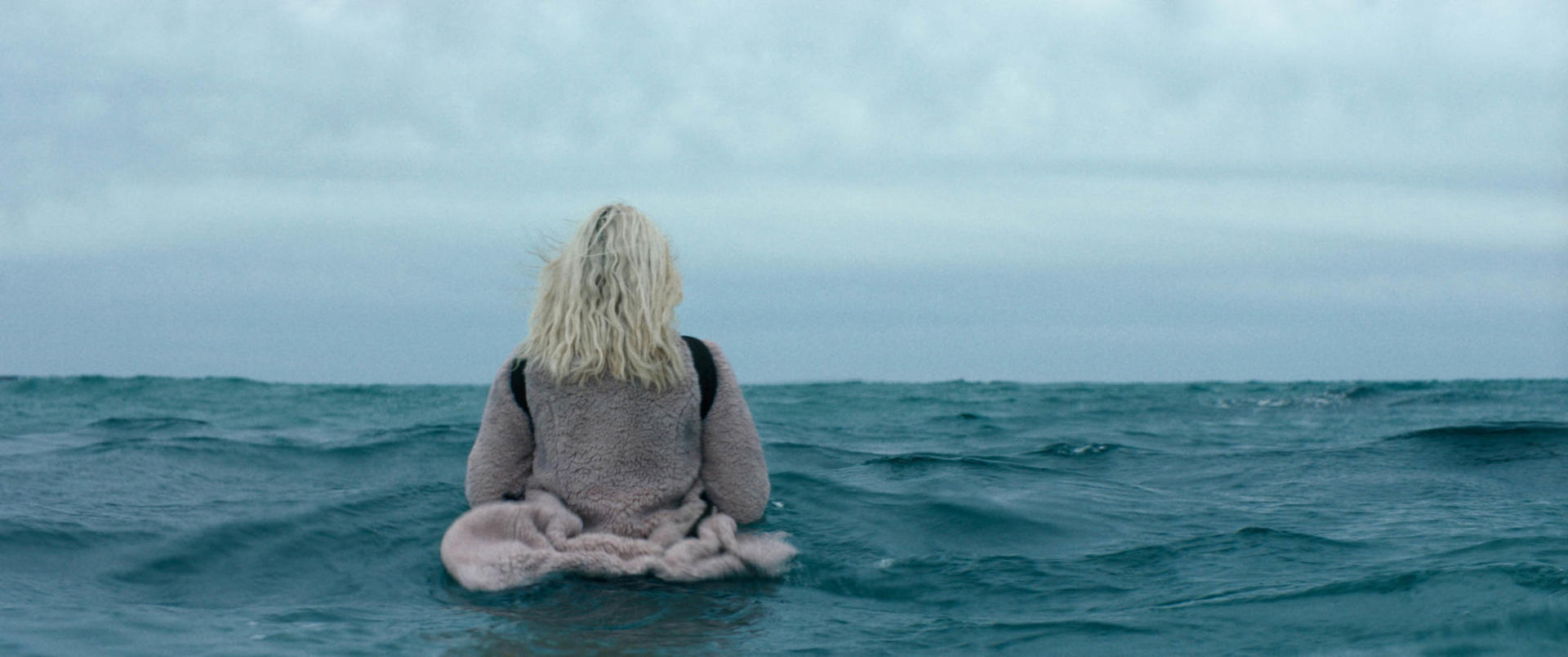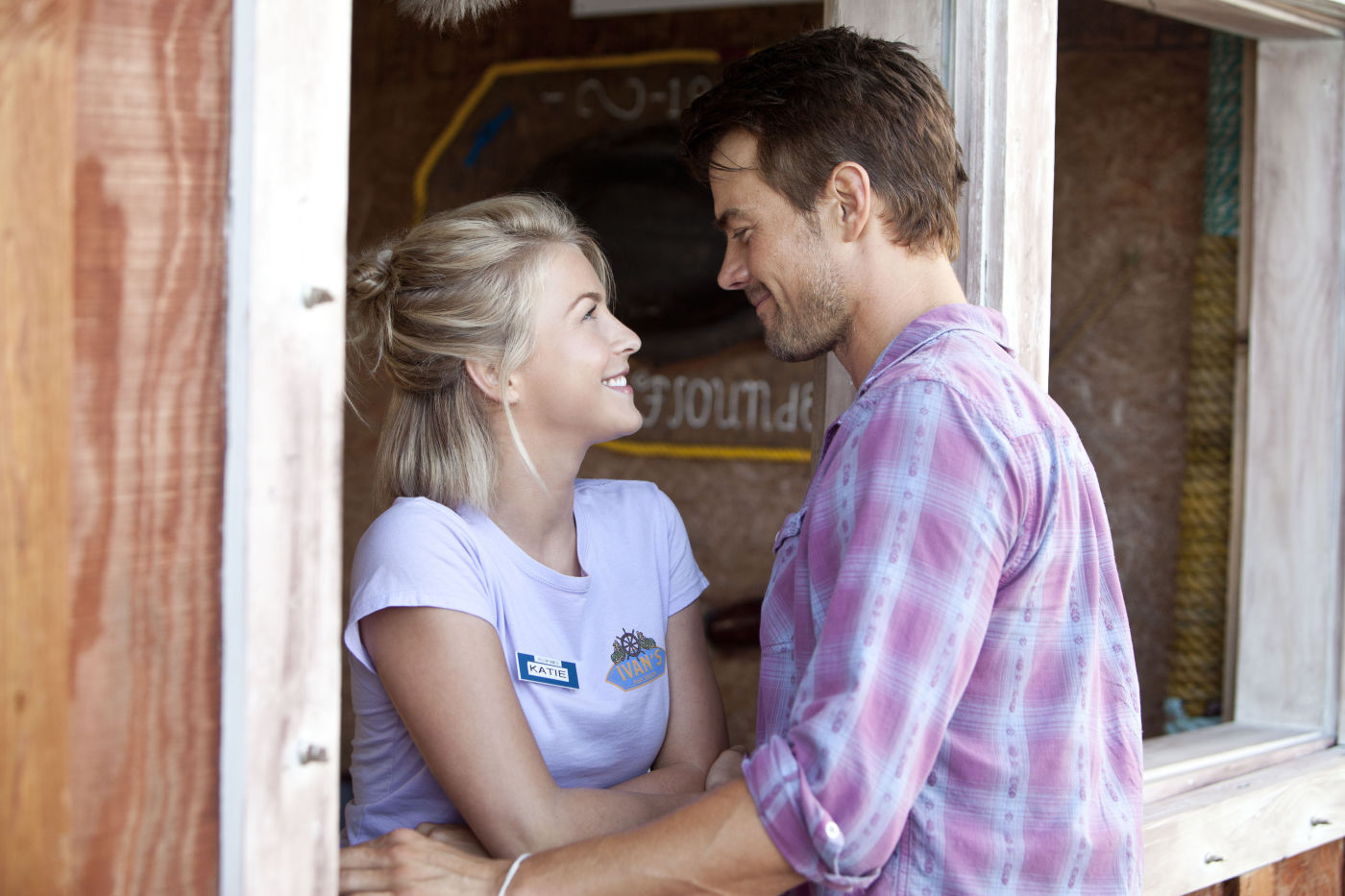Ok, suppose your dad did something that made four million people commit suicide (and presumably your name is not “Ivanka”), how would you act at the next family reunion? Actually, the better question follows the reason for the suicides: what if you knew there was an afterlife? And you not only knew there was an afterlife, but that it was better than your current life … would that make you rush to find it sooner? Yes, I think in many cases it would. And that is the premise of The Discovery.
In this future, the morgue needs extra hands. The bodies are piling, piling, piling up and the forensics guy has taken the lifetime off. The Discovery paints a very dour picture of tomorrow almost entirely from the compound [read: cult] of Thomas Harbor (Robert Redford), the scientist who found a connection to “the afterlife.” This isn’t his story, it is the story of his son, Will (Jason Segel), who has come to his father’s island to ask him to stop; the world has enough dead people already.
Just hear me out a second – is the mass suicide described here really a terrible thing? Well, yes, but ‘tis an ill wind and all that — by default happier people remain, yes? Problems with your neighbor’s dog or stereo are much smaller. So are the lines at Disneyland. Planes, trains, and stores are all less crowded, thus minimizing the effect of terrorist actions. Anti-vaxxers have no impact because their failure to create a walled community matters little. The effects of climate change are finally reduced. And finally, there will be no more reason for “The Real Housewives of _________” as the creators, participants, and fans were obviously the saddest sacks of them all. Not sayin’ this is ideal, just sayin’, hey, silver lining.
On the empty ferry to Sundance or wherever Dr. Robert Redford would hang, Will meets Isla (Rooney Mara), the only other passenger. Isla seems drawn to Will’s dour, or at least isn’t turned off by it. This is probably because Isla, like everybody else, is suicidal and it doesn’t really matter what Will does. If he turns out to be a homicidal killer, that simply saves her a bunch of work. Unfortunately, the silly part of the film follows shortly – the part where we meet the cult and the jumpsuit-wearing masses all want to be hooked up to “the machine,” a device that (presumably) allows you to experience the afterlife. Dr. Thomas spends his afternoons literally taking a nap, killing himself, and being revived, just to get another glimpse.
experience the afterlife. Dr. Thomas spends his afternoons literally taking a nap, killing himself, and being revived, just to get another glimpse.
It’s hard to take science seriously when suicide is used as a learning tool. And what kind of science is it, exactly? When somebody is hooked up to this 1960s science fair exhibit, the result is, predictably, 1960s TV minus the aerial. Is it a vision of the afterlife? The past? The future? The sideways? If Will can just keep Isla from drowning herself, they’re on the case.
The Discovery feels like Eternal Sunshine of the Spotless Mind. It isn’t that good by a long shot, but there are certainly far worse films to be compared to. I’d say it was miscast – do we really need to see two hours of mopey Jason Segel? Probably not; and yet, getting Netflix to green light a decent script seems something of a coup. That is the true discovery here.
“I’ve found something! All on alert.”
Cried the doctor whose manner was curt,
“A cure for the plague?
Do not be so vague”
“No, a fork to go with dessert!”
Rated TV-MA, 102 Minutes
D: Charlie McDowell
W: Justin Lader, Charlie McDowell
Genre: Our screwed future, optimistic version
Type of person most likely to enjoy this film: Sci-fi hounds
Type of person least likely to enjoy this film: People who can’t stand Jason Segel



